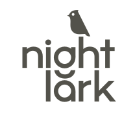Best Pillows 2025: What Our Survey Revealed About the Nation’s Sleep
Most of us don’t realise how much our pillow affects our sleep until it leaves us tossing, turning or waking with a stiff neck. Our national survey revealed just how common pillow discomfort and constant replacing really are. But what if one pillow could finally put an end to the cycle? The answer might surprise you…





